NASHVILLE, Tennessee – On Tuesday State Rep. “Fast Eddie” Smith (R-Knoxville), House sponsor of the Transit Improvement District Act, which is an amendment under “caption bill” HB2361, declined The Tennessee Star’s offer to discuss his bill as previously reported.
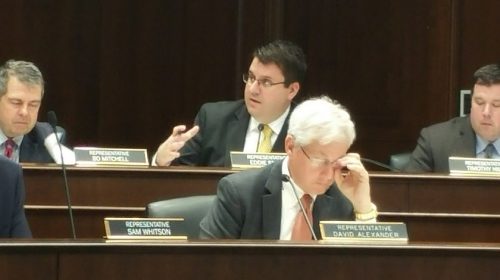
With multiple unanswered questions and several proposed amendments, the bill was rolled one week in the House Transportation Committee later that day.
One hour prior to the House Transportation Committee meeting Tuesday, Chairman State Rep. Barry Doss (R-Leoma) held a bill review, which is relatively standard practice for all committees in order to address members’ issues or concerns with the bills that are on that day’s committee calendar.
During Tuesday’s bill review, State Rep. Smith, who also sits on the House Transportation Committee, gave a brief description of the project not previously made public, saying the rail to be used is a spur that goes about 15 miles between the airport and what is being developed as the new downtown Alcoa and World’s Fair Park near UT.
Where a transit station is located, those joining the District “will willingly self-assess themselves to help pay for this, because they are going to reap the benefit from the train stops and it would spur a way to do mass transit,” promoted Rep. Smith.
Smith, painting a picture of how the rail transit would be used for a small portion of the greater Knoxville area, envisioned, “If you think about game day at UT. You have these rail cars sitting there, and people who decided to park out at the airport. How much faster is it going to be to get back to your car, rather than sitting in traffic for an hour and a half trying to leave the stadium.”
Smith said that the line would go through the heart of his district, which has been left behind as development in other areas of Knoxville that has not made its way into the more poor areas. This is a way for people to park and ride into town, with a shuttle that would come every 20 minutes, creating development, raising values and giving people jobs, said Smith, adding “That’s what it’s attempting to do.”

With federally funded projects, reported Smith, they cost $50 million per mile, yet this project is going to cost a total of less than $100 million. “As a public private partnership, which does not do what Nashville is trying to do, which is tax the entire population of Davidson County,” he added.
Smith acknowledged that there are still questions, and that he had received an amendment from the Comptroller’s Office just the night before that would ensure that a transparent process is in place which would still have to be reviewed by the committee members.
Smith began his wrap-up by saying that he thinks they have found a cost-effective way to deal with the 250,000 people expected to move to Knoxville metropolitan area in the next 15 years without burdening the taxpayers or breaking the bank. He lamented that he “never realized how many people in the Republican party would be anti-business.”
For the first time, Chairman Doss chimed in, “I love it, Representative Smith. I’m tickled to death that the business owners are taking it upon themselves to try to solve our problem,” before opening the meeting for questions.
State Rep. Courtney Rogers (R-Goodlettsville) mentioned her amendment, to which Smith added he would consider “friendly.” Rep. Rogers’ amendment would eliminate one of the two ways a District could be initiated, which was by adoption of a resolution by the governing body which could force participation in the District and, by extension, annexation. It also addressed that the vote by the governing body would be by the majority of those present by changing it to the majority of the body.
Rogers said that while she and Smith had agreed on the amendment, other issues with the Act had since been brought to her attention. She mentioned the second way a District could be initiated, a petition by a majority of the property owners holding at least two-thirds of the assessed value of the property to be included in the District.
Rep. Rogers pointed to the Act’s stipulation that “after the filing of the petition, no petitioner shall be permitted to withdraw the petitioner’s name from the petition.” The Act goes further in stating, “No petition with the requisite signatures shall be declared void on account of formal or insubstantial defects,” and also permits the governing body, at any time, to amend the petition “to conform to the facts.”
Smith believes the provision is to ensure that everyone is negotiating in “good faith” so that one person, when they don’t like how the negotiation is changing things, they “take their toys and go home,” and can “kill the whole plan.”
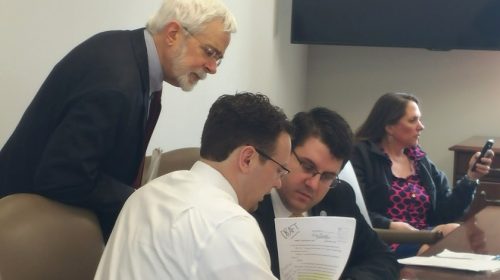
Smith’s witness, former Democratic Knoxville City Council member and failed Knox County mayoral candidate, Joe Hultquist, made a proposal to change the wording to address Rep. Rogers’ concern. Both she and Rep. Terri Lynn Weaver (R-Lancaster) expressed concern for making changes “on the fly.”
State Rep. Jason Zachary (R-Knoxville), “as the only other person representing Knoxville,” offered that he planned to bring a verbal amendment that would delay the implementation date to July 1, 2019, which would allow initial steps to be taken on the plan, but require that the bill come back next year to the legislature for additional approval.
Zachary also said that, to dispel any rumors, he spoke with Randy Boyd that morning, and “He is not behind this. He has not talked to Eddie. He has no opinion on this, because he hasn’t read the bill. This has nothing to do with him.” Later, though, Zachary told The Star that it will “100 percent it will impact him” in a positive way, as it will anybody who owns land there.
Rep. Smith, when speaking of the route between the Alcoa airport and World’s Fair Park, made the statement, “There’s been a lot of lies, if you will, just stated about where all this goes.” What he failed to mention, however, is that according to Google maps the distance between the airport and the park is approximately 15 miles, as he stated, the distance from the park to Boyd’s Jig and Reel is about one-quarter mile.
Doss responded to the idea of delaying a final approval by saying that his concern with that idea is that all the problems and issues are with the 40-year-old Central Business Improvement District law, and that “it sounds like somebody needs to bring legislation, if you don’t like it” and fix the CBID.
Rep. Rogers agreed, but added, “We don’t need to bring the same negative aspects of the CBID.”
Hultquist addressed Doss, saying, “Mr. Chairman, this is a window of opportunity,” and just like a window, they open and close. Hultquist alluded to the Blount County and downtown Alcoa development that would need to be taken advantage of, or the window would go away.
When State Rep. Terri Lynn Weaver (R- Lancaster) asked why, like a private rail line, the proposal could not happen without legislation, Hultquist speculated that with a multi-jurisdictional plan, he didn’t see working with Norfolk-Southern as freestanding option to be viable.
To Weaver’s question on who bears the risk, Hultquist responded that it would be mostly the private investors, and also qualified his response, “But they still have to have a revenue stream.”
Following Doss’s comment, “And it’s going to be self-assessed on the business owners in the District,” Hultquist responded, “It’s as close to being pure private market solution you can get without it being 100 percent.”
State Rep. Jerry Sexton (R-Bean Station), followed on with a similar line of questioning about who would bear the costs if the project failed after it started.
Hultquist responded by speaking to the amendment brought by the Comptroller’s Office as codifying what would have to be included as part of a plan.
After about 20 minutes on the topic, Doss ended debate and drew the meeting to a close, saying, at some point, “We’re going to have to take a vote. We may not be able to address everyone’s concerns.”
In the House Transportation Committee the bill, which will then include the new amendments, was rolled until next week’s meeting to be held on April 3.

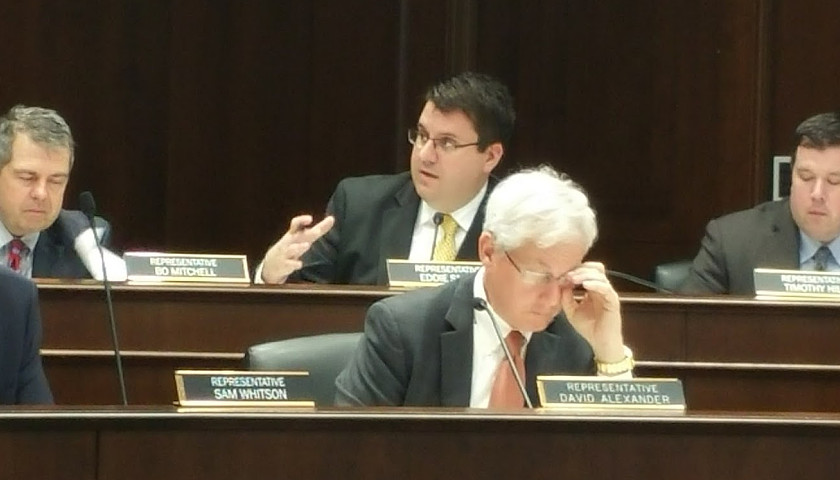
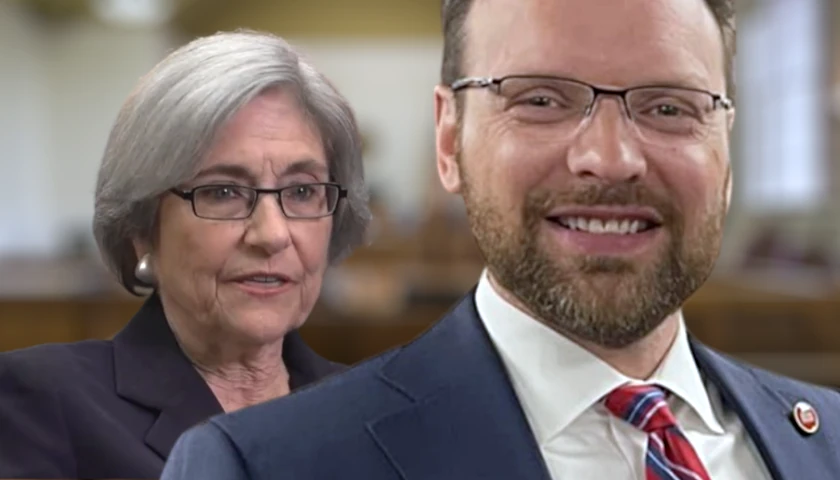
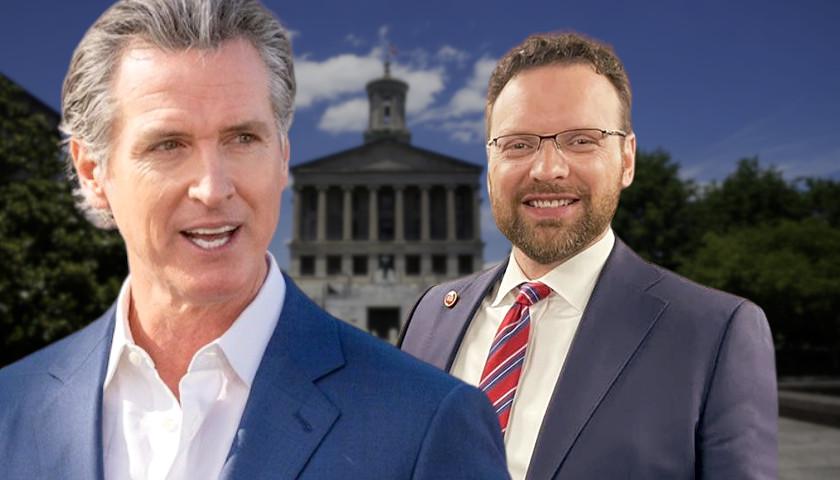
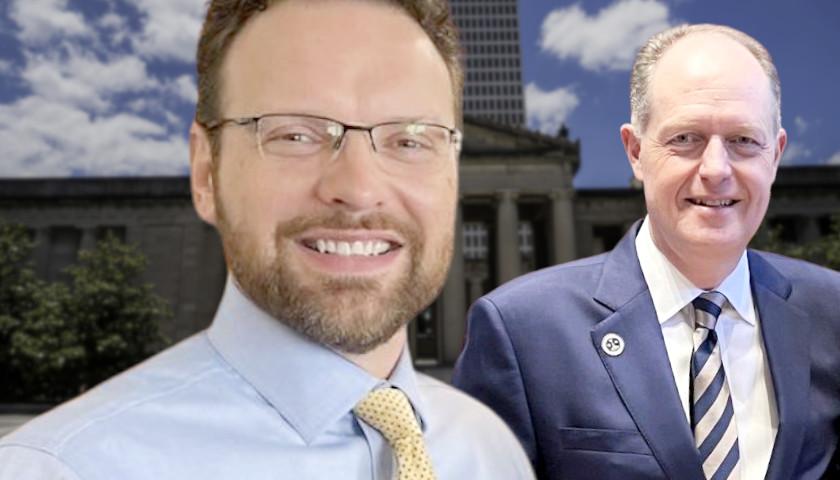

When we got rid if the idiot mayor, her stupid ideas should have gone too.
Take a close look around you, and try to find a “public-private” endeavor that actually pays for itself. In these projects, ultimately the private funds disappear, and public funding is required to keep the project from failing. When someone questions the political plutocrats, they claim, “it’s too big to allow to fail!” Government bail-outs, sound familiar?
The most aggregious part is that these entities are governed by an “appointed” board or commission. Which means there’s no way to vote them out when they “go off the rails.”